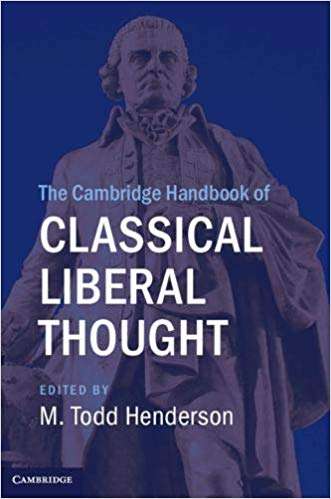The Volokh Conspiracy
Mostly law professors | Sometimes contrarian | Often libertarian | Always independent
Foot Voting and the Future of Liberty
My book chapter on this subject from the "Cambridge Handbook of Classical Liberal Thought" is now available on SSRN.

My chapter on "Foot Voting and the Future of Liberty" from the recently published Cambridge Handbook of Classical Liberal Thought (edited by M. Todd Henderson) is now available for free on SSRN. Here is the abstract:
One of the major goals of libertarianism – and liberalism generally – is expanding political freedom: the opportunity to exercise meaningful choice over the government policies we live under. The main opportunity for political choice in modern liberal democracies is ballot box voting. Despite some genuine virtues, it has serious flaws as a mechanism for enhancing political freedom. The average citizen has almost no chance of affecting the outcome of an electoral process. In part as a result, he or she also has strong incentives to make ill-informed and illogical decisions. We can do better on both fronts when we "vote with our feet."
Part I of this chapter briefly outlines three types of foot voting: voting with your feet between jurisdictions in a federal system, foot voting in the private sector, and international migration. All three involve meaningful exercises of political choice. In Part II, I explain how foot voting is superior to ballot box voting as a mechanism of political freedom. It allows for more meaningful and better-informed choice. It is also superior from the standpoint of several leading accounts of political freedom: Consent, negative liberty, positive liberty, and nondomination.
Part III considers objections to foot voting based on theories of self-determination, under which current residents of a given territory have a right to exclude newcomers in order to protect the political freedom of the former. Such theories come in both group-oriented and individualistic variants. Group theories posit that certain groups have a right to exclude newcomers based on their ethnic, racial, or religious characteristics. Individualistic theories claim that current residents can exclude newcomers for much the same reasons that private property owners or members of a private club have a right to exclude. I argue that both types of claims have severe flaws. Part IV discusses some institutional reforms that can help expand foot voting opportunities, while mitigating potential downsides. Finally, the Conclusion briefly suggests some ways in which expanded foot voting can help brighten future prospects for promoting libertarian values.
The Handbook also includes contributions by two other Volokh Conspiracy writers: Jonathan Adler on environmental protection and David Bernstein on "The Boundaries of Antidiscrimination Law."


Show Comments (43)